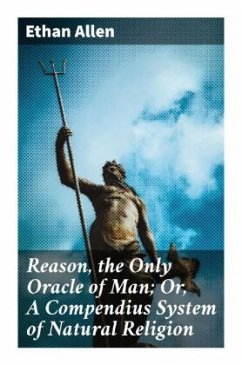
Ophiolatreia
An Account of the Rites and Mysteries Connected with the Origin, Rise, and Development of Serpent Worship in Various Parts of the World
Versandkostenfrei!
Versandfertig in 6-10 Tagen
7,49 €
inkl. MwSt.
Weitere Ausgaben:

PAYBACK Punkte
4 °P sammeln!
Edward Sellon's "Ophiolatreia" is a compelling exploration of the intertwining themes of snake worship and the human psyche, set against a rich historical backdrop. Written in the early 19th century, Sellon's prose combines a scholarly tone with vivid imagery, drawing on a diverse array of sources from classical mythology to contemporary travel accounts. The work delves into the complexities of ophiolatry, investigating both its cultural significance and the psychological implications of humanity's deep-seated fascination with serpentine symbolism. Through meticulous research and poetic techni...
Edward Sellon's "Ophiolatreia" is a compelling exploration of the intertwining themes of snake worship and the human psyche, set against a rich historical backdrop. Written in the early 19th century, Sellon's prose combines a scholarly tone with vivid imagery, drawing on a diverse array of sources from classical mythology to contemporary travel accounts. The work delves into the complexities of ophiolatry, investigating both its cultural significance and the psychological implications of humanity's deep-seated fascination with serpentine symbolism. Through meticulous research and poetic technique, Sellon crafts a narrative that captivates both the intellect and the imagination. Sellon, a prominent figure of his time, was deeply influenced by the burgeoning fields of anthropology and the natural sciences. His eclectic background in philosophy and history informed his interest in the mystical attributes of snakes across various cultures, leading him to consider the broader implications of their worship. This literary undertaking reflects Sellon's scholarly pursuit to understand the intersection of belief systems and their manifestations in physical forms of devotion, revealing much about societal values of his era. Readers with an interest in theology, mythology, or psychology will find "Ophiolatreia" a fascinating addition to their library. Sellon's rich narrative not only educates but also provokes thoughtful reflection on the complexities of faith and symbolism, making it a rewarding read for those seeking to understand the deeper meanings behind cultural practices.













